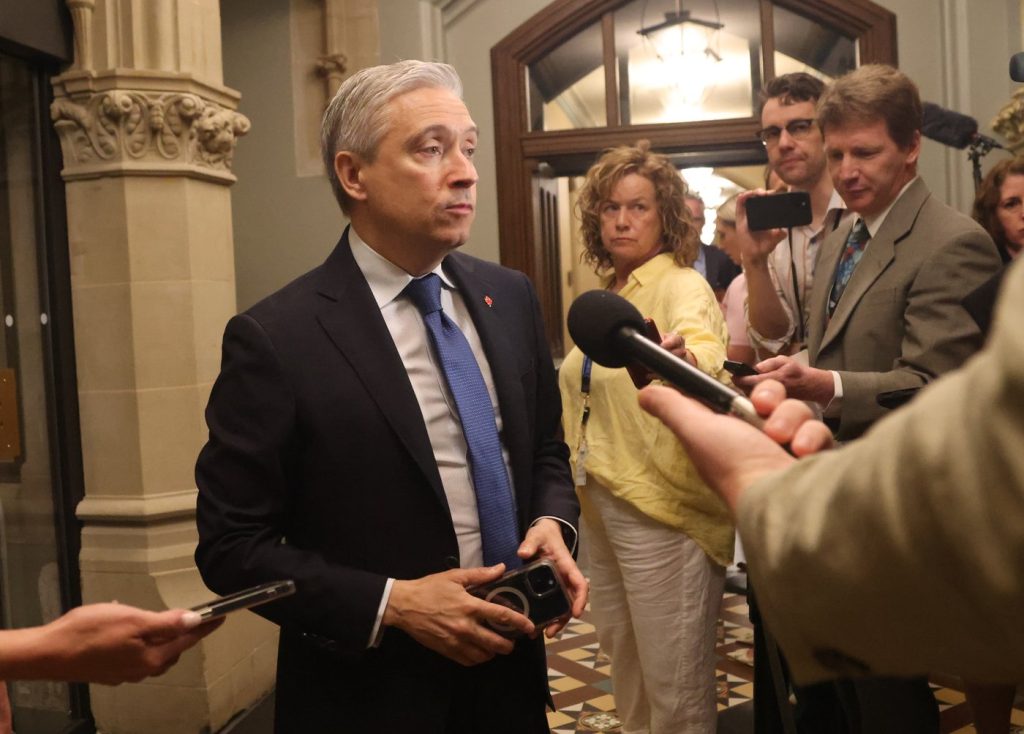Canada Rescinds Digital Services Tax
In a significant turn of events, Canada has decided to rescind its digital services tax, allowing for the resumption of trade negotiations with the United States. This decision was announced by Finance Minister François-Philippe Champagne late Sunday night, following a phone call between Prime Minister Mark Carney and U.S. President Donald Trump. This announcement came mere hours before the first payment under the controversial tax was due from major tech companies such as Amazon and Google.
Previously, on Friday, Trump had used his social media platform, Truth Social, to declare an end to all trade discussions with Canada due to the digital services tax, describing it as a "direct and blatant attack" on the United States. Carney expressed in his statement that the latest development aligns with the timeline set during the G7 Leaders' Summit in Kananaskis, with negotiations now directed toward reaching an agreement by July 21, 2025.
In discussions leading up to the announcement, a spokeswoman for Carney confirmed that he had spoken with Trump and that Champagne also held conversations with U.S. Treasury Secretary Scott Bessent on the matter.
Background on the Digital Services Tax
The digital services tax, which Canada aimed to implement, was designed to collect revenue from multinational tech companies operating within its borders. The anticipated revenue from this tax was close to $2 billion, a cost that would have directly impacted the companies required to pay it. The sudden cancellation of the tax not only dissolves the immediate financial burden for these corporations but also clears the path for Canada and the U.S. to rekindle trade relations that have been strained for years.
Trump's public objections to the tax were underscored by earlier frustrations about Canada's dairy sector protections, which impose high tariffs on American agricultural products. This complex backdrop has exacerbated tensions between the two nations, prompting federal and provincial leaders in Canada to seek ways to dismantle trade barriers internally.
Canada's Commitment to Trade
Amid these developments, Prime Minister Carney has faced questions regarding his commitment to dismantling internal trade barriers within Canada. Throughout the recent election campaign, Carney vowed to eliminate these barriers and promote free trade across provinces by Canada Day, which is around the corner. His government's latest legislative moves are seen more as a beginning rather than a complete resolution to the longstanding challenges that have hindered trade between provinces, resulting in significant costs to the economy.
Trade expert Ryan Manucha commented that the government's actions represent an initiation to more extensive discussions and improvements rather than an end to the underlying issues. One study estimates that barriers to internal trade cost the Canadian economy approximately $200 billion annually, highlighting the urgency of the situation.
Alberta's Independence Movement
In the context of Canadian federalism, Alberta's government is preparing to formalize new rules that would facilitate a potential independence referendum. Prime Minister Carney's administration faces regional pressures as Alberta plans to lower the threshold for citizens to call for a provincewide vote on separation. This proposal, driven by Premier Danielle Smith's United Conservative government, is set to take effect just days after Canada celebrates its 158th birthday.
Mitch Sylvestre, CEO of the Alberta Prosperity Project, plans to initiate a petition under the new regulations, targeting 177,000 signatures within 120 days. The push for independence has gained traction in the province, with proponents asserting a strong belief in the possibility of success should a referendum occur.
Tragic Incident in Idaho
In a separate tragic incident, a wildfire ignited in northern Idaho resulted in a devastating ambush that left two firefighters dead and a third injured. The assailant, armed with a rifle, set the blaze and subsequently opened fire on first responders. After an extensive tactical response, authorities found the gunman’s body near the fire site, marking a grim end to a series of events that unfolded over several hours.
This incident further emphasizes the complex dynamics between environmental challenges and public safety responses in the region, illustrating the dangers responders face while undertaking their vital roles in fire management and disaster response.











